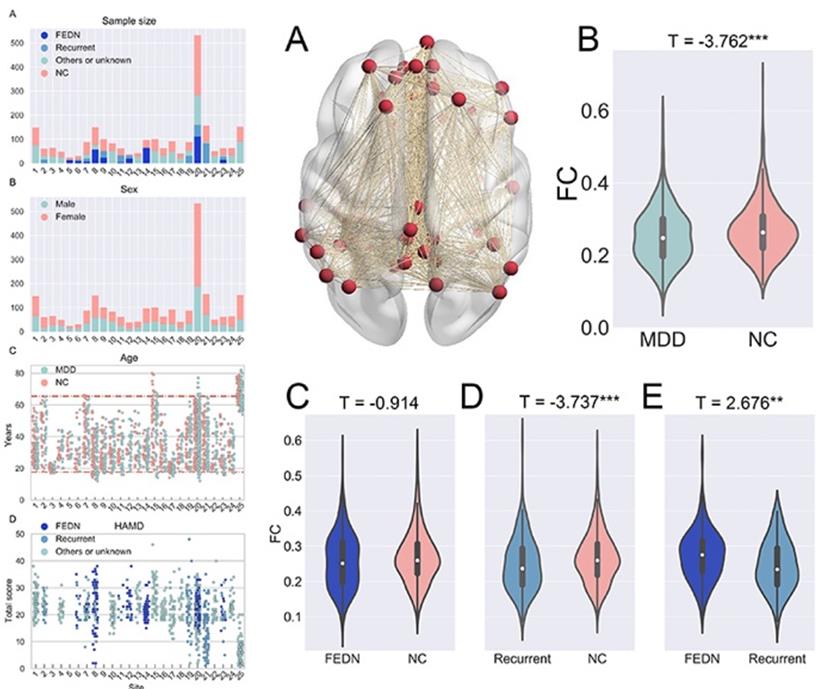
Recently, in collaboration with a total of 25 major depressive disorder (MDD) research group from 17 distinct institutes, YAN Chaogan's lab published a scientific paper on PNAS.
YAN Chaogan from Institute of Psychology of the Chinese Academy of Science, together with other scientists, invited experts of psychiatry in China to initiate the REST-meta-MDD project.
Until now, REST-meta-MDD project has successfully accumulated brain-imaging data of 1,300 MDD patients and 1,128 healthy control participants from 25 research group in 17 hospitals. This is the largest R-fMRI dataset on MDD in the world.
MDD, often referred to as depression, is a psychiatric disorder with high recurrence rate, high suicide and disability rate, which causes an extremely heavy social and economic burden each year. However, the physiology underlying this disorder is still unclear, lacking biological objective criteria. Neuroimaging methods have been widely used to study the neural mechanisms of depression.
Among all brain networks, the most consistent finding on depression is the abnormality of the default mode network (DMN) activity. At present, most neuroimaging researches on depression's DMN abnormalities have small sample size, resulting low statistical power. Therefore, it is urgent to carry out a multi-center large-sample study to investigate the default network abnormalities of depression.
Based on this largest R-fMRI database of MDD, Yan lab analyzed the abnormal pattern of functional connectivity (FC) within the default mode network (DMN) in MDD. The results showed that FC within the DMN in MDD was abnormally reduced than that of healthy controls.
A further detailed examination found that this effect was only significant in recurrent MDD whether vs. controls or first episode drug naive MDD patients.
Moreover, this reduction appears to reflect medication usage rather than illness duration. Up till now, these results have been the strongest empirical evidence for the debate on MDD's concrete abnormalities- increased or decreased functional connectivity of DMN, enlightening the mechanism of antidepressants medication treatment on DMN, which thus highlights the pivotal role of default mode network’s abnormality in the brain mechanism of MDD.
The presently largest R-fMRI dataset of MDD, inspires the exploration of an objective diagnostic system of MDD underlying machine learning. Furthermore, all R-fMRI indices of data contributed, containing neuroimaging data of 1,300 depressed patients and 1,128 normal controls from 25 groups in China, are available to worldwide researchers, which would enable scientists from diversified fields (e.g. machine learning experts) to jointly contribute to the improvement of diagnosis and treatment to MDD and acquire a better understanding of human brain. In the future, Yan Lab is going to launch international collaboration to establish the International REST-meta-MDD consortium.

The world's largest MDD R-fMRI dataset revealed a reduced DMN FC pattern in recurrent MDD patients (Image by YAN Chaogan)

86-10-68597521 (day)
86-10-68597289 (night)

86-10-68511095 (day)
86-10-68512458 (night)

cas_en@cas.cn

52 Sanlihe Rd., Xicheng District,
Beijing, China (100864)

